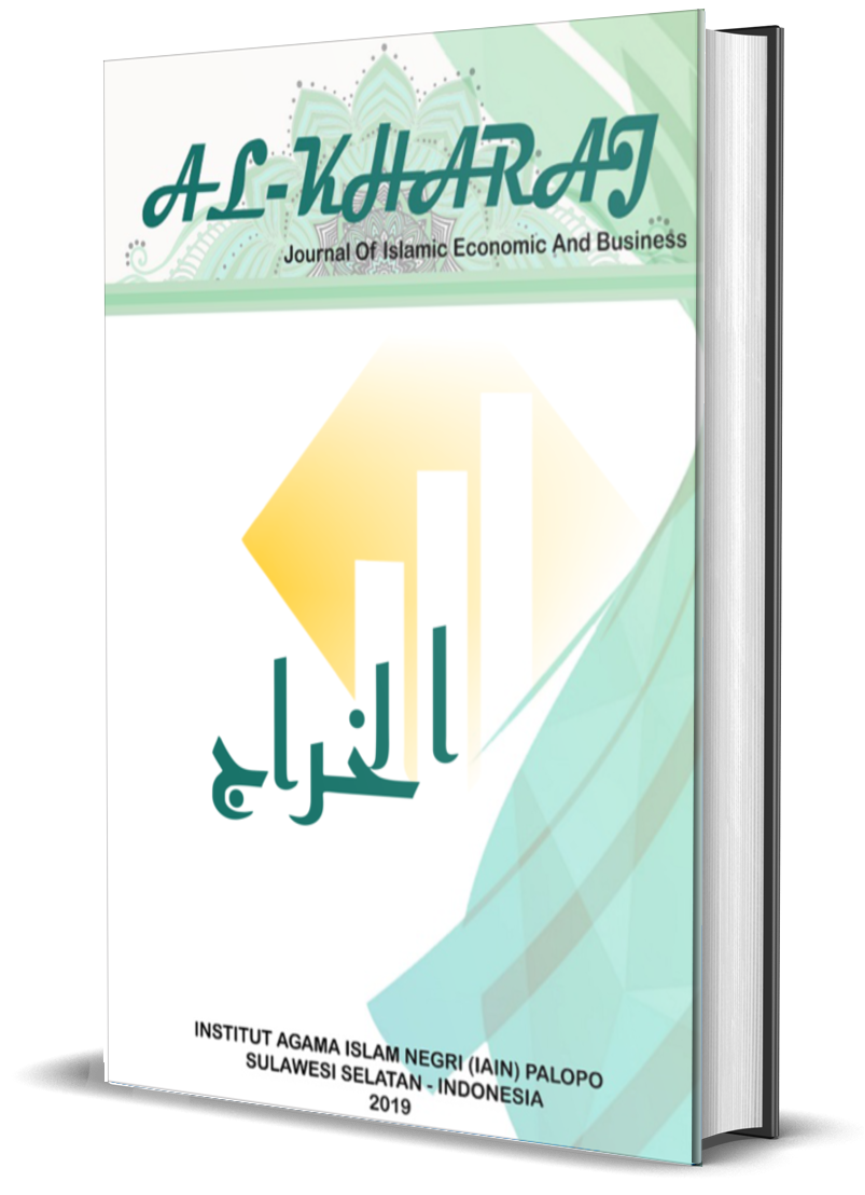Harmonization of Islamic Economics With Artificial Intelligence: Towards an Ethical and Innovative Economic Paradigm
DOI:
https://doi.org/10.24256/kharaj.v5i4.4387Keywords:
Harmonization, Islamic Economics, Artificial IntelligenceAbstract
References
Abbas, K., & Hafeez, M. (2021). Wıll Artıfıcıal Intellıgence Rejuvenate Islamıc Fınance? A Versıon of World Academıa. Hitit Theology Journal, 20(3), 311–324. https://doi.org/10.14395/hid.931401
Alsayyed, N. (2010). Shari’ah Board, The Task of Fatwa, and Ijtihad in Islamic Economics, and Finance. Finance, 20204. http://mpra.ub.uni-muenchen.de/20204
Barlinti, Y. S. (2011). Harmonization of Islamic Law in National Legal System: A Comparative Study Between Indonesia Law and Malaysian Law. Indonesia Law Review, 1(1). https://doi.org/10.15742/ilrev.v1n1.95
Elamin, M. O. I. (2023). Advancing Ethical and Sustainable Economy: Islamic Finance Solutions for Environmental, Social, & Economic Challenges in the Digital Age. International Journal of Membrane Science and Technology, 10(5), 408–429. https://doi.org/10.15379/ijmst.v10i5.2515
Febriana, S., Miru, A., Azwan, M., Hasanuddin, U., & Palsu, I. (2022). El-Iqtishady : Jurnal Hukum Ekonomi Syariah Volume 4 Nomor 2 Desember 2022 Halaman 146-160 El-Iqtishady : Jurnal Hukum Ekonomi Syariah Volume 4 Nomor 2 Desember 2022 Halaman 146-160. 4, 146–160.
Gazali, H. M., Jumadi, J., Ramlan, R., Rahmat, N. A., Nor, S., Uzair, H. M., & Mohid, A. N. (2020). Application of Artificial Intelligence (AI) in Islamic Investments. Journal of Islamic Finance, 9(2), 70–78.
Ghlamallah, E., Alexakis, C., Dowling, M., & Piepenbrink, A. (2021). The topics of Islamic economics and finance research. International Review of Economics and Finance, 75(April), 145–160. https://doi.org/10.1016/j.iref.2021.04.006
Hamid, S., CRAIG, R., & CLARKE, F. (1993). Religion: A Confounding Cultural Element in the International Harmonization of Accounting? Abacus, 29(2), 131–148. https://doi.org/10.1111/j.1467-6281.1993.tb00427.x
Hassan, M. K., Sarac, M., & Alam, A. W. (2020). Islamic Perspective for Sustaninable Financial System. In Islamic Perspective for Sustainable Financial System.
Hennen, L., Hahn, J., Ladikas, M., Lindner, R., Peissl, W., & van Est, R. (2023). Technology Assessment in a Globalized World: Facing the Challenges of Transnational Technology Governance. In Technology Assessment in a Globalized World: Facing the Challenges of Transnational Technology Governance. https://doi.org/10.1007/978-3-031-10617-0
Hudaefi, F. A., & Noordin, K. (2019). Harmonizing and constructing an integrated maqÄá¹£id al-SharÄ«Ê¿ah index for measuring the performance of Islamic banks. ISRA International Journal of Islamic Finance, 11(2), 282–302. https://doi.org/10.1108/IJIF-01-2018-0003
Ishtiaq, M. (2019). Book Review Creswell, J. W. (2014). Research Design: Qualitative, Quantitative and Mixed Methods Approaches (4th ed.). Thousand Oaks, CA: Sage. English Language Teaching, 12(5), 40. https://doi.org/10.5539/elt.v12n5p40
Khorasi, A. (2014). An Analysis of Islamic Finance Framework , Authority in Islam and a Need for Paradigm Shift in Islamic Finance By Aasif Khorasi Dissertation submitted in partial fulfillment of MSc in Finance and Banking Dissertation Supervisor Bismillahir Rahmanir Rahim .
Kilic, G. (2023). The Emergence of Islamic Fintech and Its Applications. International Journal of Islamic Economics and Finance Studies, September. https://doi.org/10.54427/ijisef.1328087
Kuzior, A., Sira, M., & Brożek, P. (2023). Use of Artificial Intelligence in Terms of Open Innovation Process and Management. Sustainability (Switzerland), 15(9). https://doi.org/10.3390/su15097205
Rai, D. (2022). Islamic Economics and Finance as an Alternative for the Current Economic System in the Context of Covid-19. Journal of Islamic Economics and Philanthropy, 5(4), 245. https://doi.org/10.21111/jiep.v5i4.7395
Raucci, D., & Tarquinio, L. (2020). Sustainability performance indicators and non-financial information reporting. Evidence from the Italian case. Administrative Sciences, 10(1). https://doi.org/10.3390/admsci10010013
Robles Carrillo, M. (2020). Artificial intelligence: From ethics to law. Telecommunications Policy, 44(6), 101937. https://doi.org/10.1016/j.telpol.2020.101937
Rostami, A., & Tirtashi, N. K. (2023). Application of Artificial Intelligence in Financial Systems From the Perspective of Islamic Economics. Economic Jurisprudence Studies.
Setyowati, W., & Rahayu, I. S. (2023). Sector Analysis of Islamic Capital Markets and Artificial Intelligence Functioning as Sharia Advisors. International Transactions on Artificial Intelligence (ITALIC), 1(2), 236–244. https://doi.org/10.33050/italic.v1i2.334
Sugiyono. (2019). Metode Penelitian Kuantitatif, Kualitatif, dan R&D. Alphabet.
Syamsuri, S., Farizi, M., & Khotimah, H. (2022). Digitalization of the Economy and the Cultural Impact of Consumption in Modern Society: A Review from Al-Syaibanī’s Perspective. Dinar: Jurnal Ekonomi Dan Keuangan Islam, 9(2), 59–72. https://doi.org/10.21107/dinar.v9i2.17918
Syed, M. H., Khan, S., Rabbani, M. R., & Thalassinos, Y. E. (2020). Model Combining Zakat and Qardh-Al-Hasan for Countering the Adverse Impact of COVID 19 on SMEs and Individuals. International Journal of Economics and Business Administration, VIII(2), 351–364.
Tsakalogianni, I. (2023). THE TWIN TRANSITION: MAPPING THE USE OF ARTIFICIAL INTELLIGENCE IN SUSTAINABILITY. Journal of Engineering Research, July.
Warman, A. B., Hayati, R. F., & Nabilah, W. (2021). Harmonozation Of Islamic Economic Law With Local Culture:Study Of The Petatah-Petitih Minangkabau. Tafaqquh: Jurnal Penelitian Dan Kajian Keislaman, 9(2), 162–178.
Yuspin, W., Wardiono, K., Budiono, A., & Gulyamov, S. (2022). The Law Alteration on Artificial Intelligence in Reducing Islamic Bank’s Profit and Loss Sharing Risk. Legality: Jurnal Ilmiah Hukum, 30(2), 267–282. https://doi.org/10.22219/ljih.v30i2.23051
Downloads
Published
How to Cite
Issue
Section
Citation Check
License
Authors retain copyright and grant the journal right of first publication with the work simultaneously licensed under a Creative Commons Attribution-ShareAlike 4.0 International License. In line with the license, authors are allowed to share and adapt the material. In addition, the material must be given appropriate credit, provided with a link to the license, and indicated if changes were made. If authors remix, transform or build upon the material, authors must distribute their contributions under the same license as the original.









